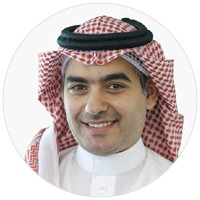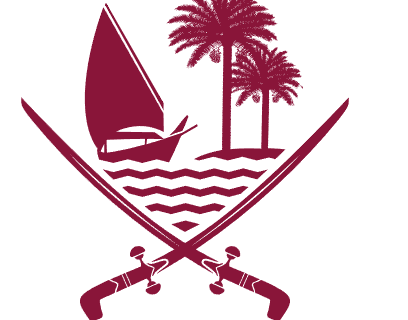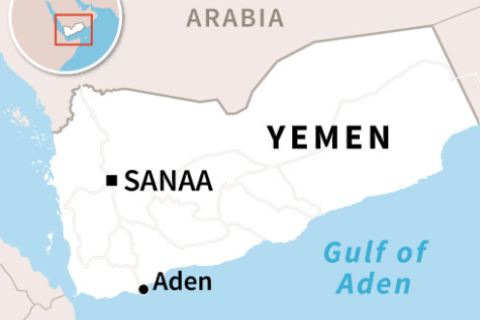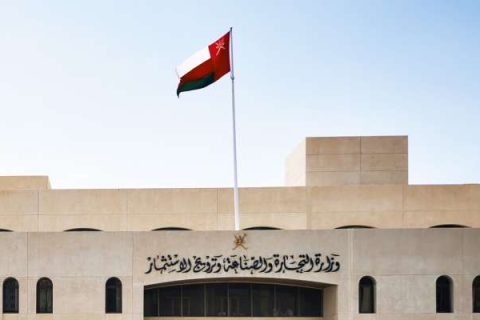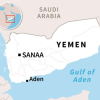Saudi Arabia has been a leader in the Gulf Cooperation Council and Middle East and Northern Africa (MENA) region in fostering innovation and revolutionizing its intellectual property (IP) processes, rules, and regulations. The main aim of the Saudi Authority for Intellectual Property (SAIP) is the digital transformation and automation of all its services, and to offer a smooth and user friendly, one-stop shop for IP rights holders. It also has been working extensively across the country to raise IP awareness and strengthen enforcement.
Yasser Al-Debassi, the executive director of IP Respect and Enforcement at SAIP, recently sat down with the INTA Bulletin to discuss the Office’s latest developments. He described new plans and projects underway as part of the SAIP’s vision for the Kingdom’s IP stance and as it contributes to Saudi Vision 2030, the country’s strategic and investment roadmap.
Please tell us about the SAIP and how it functions.
The SAIP was created [in 2018] to serve as a specialized authority that would handle all aspects of IP. Before its establishment, copyright, patents, and trademarks were handled by different ministries. The Media Ministry handled copyright, King Abdul Aziz City handled patents, and the Ministry of Commerce handled trademarks. The SAIP now handles all these mandates under one umbrella, under a centralized body, so that it’s like a one-stop shop for all IP matters.
In terms of structure, we have a state committee that oversees SAIP as well as three main streams. The first is the operation, where we focus on the registration of copyright, patents, and trademarks. Then we have the enablement, where we enable IP in terms of providing trainings, establishing the academy, and the IP clinic through which we support individuals and businesses. Finally, we have the enforcement stream where we focus on providing protection and enforcement of IP in the Kingdom.
We are now focusing on evaluating the current regulations, as well as the laws and bylaws. We are introducing new drafts of these regulations that are more applicable to the current framework of IP, either in the Kingdom or the region or globally. We are also working on the treaties and evaluating the current ones, and working on joining new treaties, like the Madrid Protocol.
[SAIP] is like a one-stop shop for all intellectual property matters.
What are the number of employees and examiners, and what percent are women?
Currently, SAIP has nearly 50 patent and trademark examiners and aims to increase the number during the coming period, while the percentage of women is more than 35 percent.
How is your Office working to raise awareness around IP?
We are partnering with government entities, schools, and universities, and using mass campaigns to raise IP awareness. We also have the academy, and we provide trainings for both businesses and individuals through workshops. We’re also using social media, articles, and all streams available. Sometimes we use sports events. We’re trying to reach as much of an audience as possible. We’re working on spreading the awareness of IP in terms of the rights, how to protect your rights, what are the types of IP, and infringement and enforcement.
We recently launched a campaign, Story of Infringements, where we state the case, what the infringement is, and what the sanctions and penalties are. This is published all over SAIP’s social media.
We also launched an initiative that we call IP respect officer. In this initiative, we targeted all the government entities, and we requested them to nominate an IP officer who will represent each government entity, and we received nominations from over 90 government entities. Our objective is to train these officers through a special academy at SAIP with the executive team. We also have some programs with WIPO [the World Intellectual Property Organization], and a plan for these officers to ensure these government entities’ compliance and to be proactive and raise IP awareness in the government entities they belong to, to ensure they follow all regulations and comply with the process/procedures of IP.
Will they act as consultants for SAIP?
Yes, they work as consultants for their entities with the support of SAIP. They will be like self-inspectors for the entity, and while the officer will belong to the government entity, he will be the responsible party to ensure that their entity is compliant with IP regulations. They will be consultants, self-inspectors, auditors, and the contact person between SAIP and the governmental entity. They are provided with a full content guide for internal communication that will cover all aspects of IP. The officers will share the guide with their entities.
We are now focusing on evaluating the current regulations, as well as the laws and bylaws.
What other initiatives is your Office working on right now?
We launched the IP respect concept in the first quarter of 2020. We are basically targeting one sector at a time, by setting a roundtable with companies or committees related to each sector together with agencies and related government entities to discuss the challenges that this industry is facing with respect to IP. We try to come up with solutions to overcome these challenges and discuss the opportunities of working together to enhance the sector or industry, either by introducing new initiatives or partnerships or through amendments in the regulations.
We also have established the National Committee for Enforcement and Respect of IP Rights. Twelve entities will participate in this national committee, which will be responsible for overseeing enforcement in the Kingdom. We have drawn up and fulfilled all the regulations related to establishing this committee and we have the members of the committee nominated and selected. We’re aiming to launch this committee soon.
What are the implications for the IP processes now that SAIP is in charge?
A key objective of SAIP is to improve IP processes in the Kingdom and to be a hub in the MENA region with respect to IP. We’re aiming to raise the Kingdom’s ranking in the Global Innovation Index. We’re customer-centric and we’re focusing on how to provide good-quality services. New changes to the processes are expected. We’re aiming to have a huge impact on IP in the Kingdom with respect to establishing SAIP and with the support of the government.
Complaints can now be submitted via the SAIP portal. What is the process, what types of complaints is SAIP receiving, and are the decisions made being enforced? If so, how?
We receive all kinds of complaints both in-person and online. We’re working on the infrastructure to establish a full system for enforcement that will integrate and automate all services. One of the streams will be a crowdsourcing app that will enable anyone to raise a complaint through the application from A to Z [from filing the complaint to examination to decision]. We’re working with several systems that will be launched during the next year.
Once a case is raised, it has several steps. The first one is for the complainant to provide all necessary information and proof. Once the application is complete, it goes through an examination process. Once examined, we receive a report with all the information on the case, the results of the examination, and the recommendations. It will be sent to the public prosecution and then to the special court and the final judge.
So SAIP does not rule on it; rather, it goes to the courts?
We used to have a special committee. However, now it’s been transferred to the courts, and they have a special circular within the commercial court responsible for IP. We have trained over 45 judges for these courts with the program internally, and externally through a partnership with WIPO.
Once the judgment is stated, if the judgment includes seizing, fines, or closing the shop, SAIP will enforce the decision. If it’s a jail ruling or related matter, it will be enforced by the government. Basically, SAIP enforces all copyright and trademark issues and judgments. Patents have a special patent committee, and they have the right to enforce and deal with any infringements. However, once we move all the mandates of these special committees to the courts, the enforcement part of patents will be within these committees. So, we only supervise these enforcements. If, for example, the judgment of the committee is stopping an infringement of a medicine, the government and Saudi Food and Drug Authority would be responsible for this ruling. The entity responsible for enforcement depends on the case and the related sector, but SAIP is always responsible for supervising and ensuring the ruling was enforced.
One of SAIP’s huge initiatives is the digital transformation and the automation of all our services.
How has COVID impacted SAIP and its operations?
Before the lockdown, in the early stages of the COVID-19 pandemic, we had an emergency plan. We have established an internal committee for the emergency plan for SAIP; we call it a continuity committee. We evaluated all our options if things got worse, and how it will affect the internal work and processes, and the rights holders. Our objective was to ensure work is running smoothly and applicants are being served. We worked on the IT infrastructure and provided all the IT tools needed to fully work remotely. And the numbers of applications actually increased during the pandemic. We waived some requirements—like providing a legalized POA [power of attorney]—to make it easier for applicants.
In relation to SAIP’s digital transformation plan, has the lockdown provided more time to reflect and prioritize other things?
Yes, COVID-19 affected our progress in the initiatives and projects we had. One of SAIP’s huge initiatives is the digital transformation and the automation of all our services. This project has been affected by COVID, but it is back on track now. During the hold-up of these projects, we had more time to review the business requirements and focus on improving them.
Congratulations on the first sound mark registered in Saudi (in August 2020). What is the plan to examine and enforce nontraditional trademarks, and can you give us a glimpse of all the behind-the-scenes work involved in accomplishing this?
Nontraditional trademarks are new for us. We’re working with the trademark team as well as the Ministry of Commerce and the private sector to come up with the applicable solution in terms of enforcement. The first sound mark, which was granted to Saudi Telecom Company (STC), is famous for us. Anyone who hears it would know it’s STC, so this is why it’s easier to examine it and enforce it.
As for non-famous sound marks, they will be a bit more challenging, but we’re working on several steps to ensure we can enforce these trademarks. I think the challenging part will be within the registration process, namely the process of verification and validation of the ownership of the nontraditional trademark is the part we will be working on. Enforcement will be easier once registration is done.
Are there any other changes on the horizon that you would like to highlight?
We’re working on a system specifically with trademarks which will be like a database for trademark owners in which to build their IP rights profiles. The system will connect rights holders with the governmental authorities and Customs department. If Customs has products that need to be released, they can verify the information through this system and connect with the trademark rights holders for any clarification. It will be like a whistleblowing alert for trademark rights holders if there’s suspicion of infringement. The system can also be used for products already in the market, to raise a flag if there’s infringement at any shop in the Kingdom.
Rimi Kbar Alyafi IP Group Riyadh, Saudi Arabia INTA Bulletins—Middle East and Africa Subcommittee


